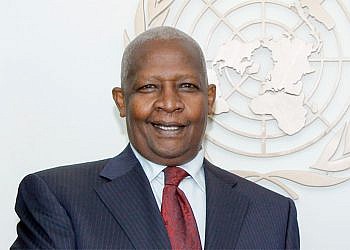Legislators have scrapped the Non-Governmental Organisations (NGOs) Board returning its mandate of overseeing operations of NGOs back to the Ministry of Internal Affairs.
This was while the lawmakers considered the NGO (Amendment) Bill, 2024 passed during the plenary sitting on Tuesday.
The Chairperson, Committee on Defence and Internal Affairs, Wilson Kajwengye, said that the functions of the National Bureau of NGOs can be performed in the Ministry, like it was the case in 2016 before the Board was created.
The amendment now mainstreams the Bureau as a department under the Ministry of Internal Affairs, as part of government’s policy to rationalize various entities.
The new law replaces the NGO Board with a Bureau that will be headed by a Secretary, who will be supervised by the Permanent Secretary of the Ministry of Internal Affairs.
According to the new legal regime, the Secretary shall be responsible for the day to day operations of the Bureau, the management of its funds, as well as administration and management of the property of the Bureau.
Kajwengye justified that dissolving the Board will save government from accumulating arrears of up to Shs1.1 billion every year, being the costs of facilitating the NGO Board and Adjudication committee.
“The Non-Tax Revenue collected from NGO registration will also be mainstreamed into the Ministry,” said Kajwengye.
Asuman Basalirwa said that the stay of the National Bureau of NGOs is not justified because of the current bureaucratic processes entailed in renewal of NGO licenses.
“Getting information or renewal of licenses from NGO Board is extremely difficult, even basic things are being a challenge, I do not think its stay is justified,” Basalirwa said.
Dononzio Kahonda however, differed from the Committee’s report, arguing that the Board has enhanced registration, monitoring and inspection of NGOs.
He added that the NGOs and CBOs registered in Uganda are reported to bring into the country a minimum of Shs4.5 trillion annually, and therefore compliments the work of government.
“It is the minority’s concern that mainstreaming the Bureau as a department will deny the country the unique, specialised expertise required to oversee a rather complex and dynamic NGO sector,” said Kahonda.
Kiboga District Woman MP, Christine Kaaya, supported the minority report, saying that mainstreaming the Bureau under the Ministry of Internal Affairs will affect inspections and monitoring of NGOs.
“It will be a very difficult moment if the Board is dissolved because NGOs are bound by donors who need timely responses and we know their contributions in terms of fundraising for this nation,” she said.










































